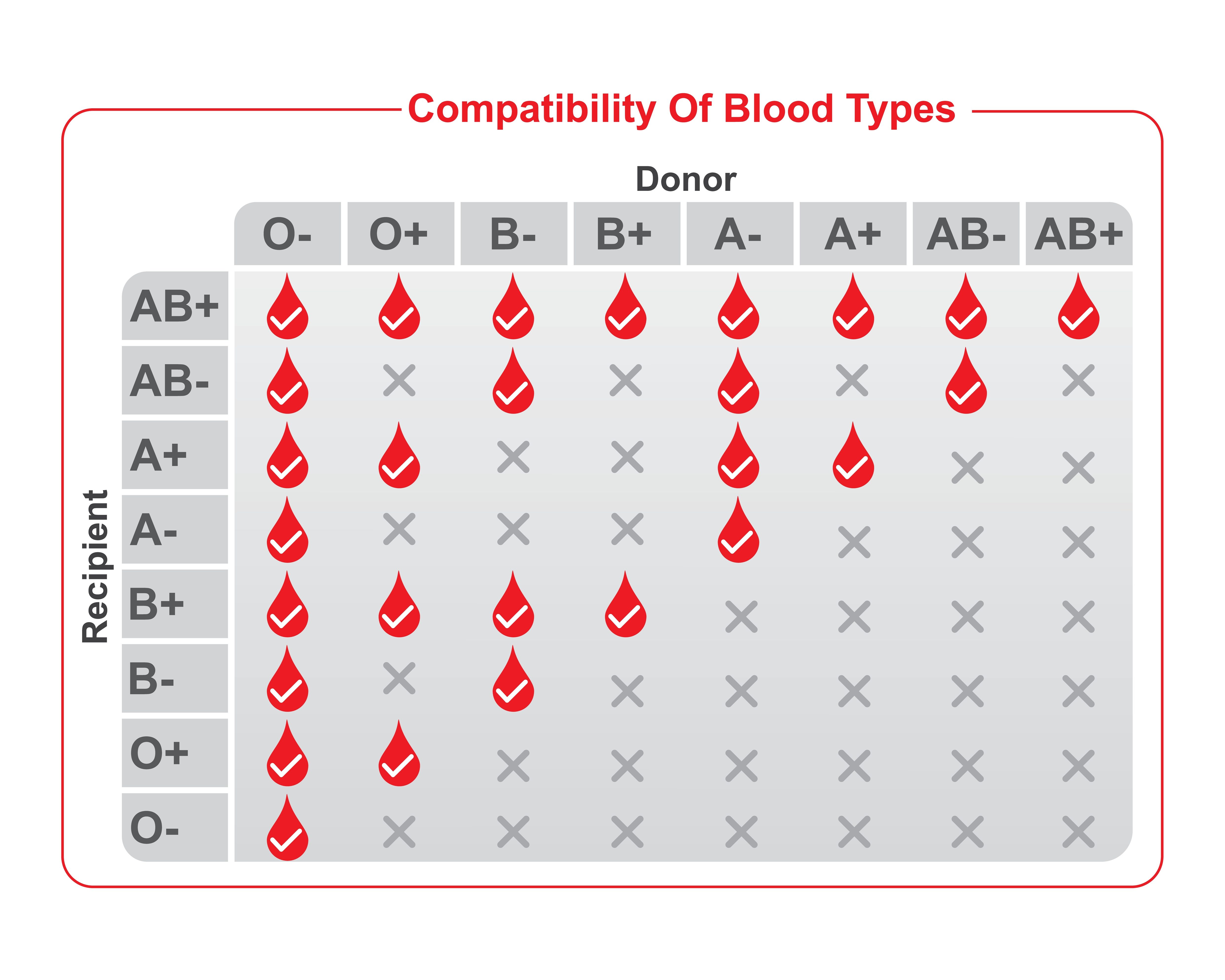There’s a blood type so rare that fewer than 50 people in the world are known to possess it. Scientifically known as Rhnull (Rhesus null), it’s often referred to as “golden blood” due to its extreme rarity – and its value to others.
To understand why Rhnull is so rare and precious, you need to quick crash course on blood types.
You’ve most likely heard of the four main blood groups: A, B, AB, and O. This grouping is determined by the presence of A and B antigens that will spark an immune response if the red blood cell is introduced into someone not compatible: blood type A has A antigens, blood type B has B antigens, blood type AB has both antigens, and blood type O has neither.
In addition to the A and B antigens, there are other proteins found on red blood cells called the Rh factor, whose presence or absence determines whether a blood type is positive (+) or negative(−). Although there are actually 61 blood group antigens (Rh antigens), the negative/positive divide refers to the absence or presence of one Rh antigen – the Rh(D) antigen.
A person can only give blood to someone with compatible blood antigens. So, people with Rh− blood can give blood to both Rh− and Rh+ recipients since Rh− lacks the troublesome protein. However, those with Rh+ blood cannot give to Rh− recipients. Rh positive is much more common than Rh negative, although there is some variation across different populations.
Type O negative blood has none of the antigens mentioned here, so it will not trigger an immune response from anyone it’s given to and is considered a universal blood type.

Blood types compatibility table. Image credit: Ali DM/Shutterstock.com
It does get a lot more complicated than this with hundreds of antigens playing a role, but that’s the bare bones of what you need to know to understand why golden blood is so unusual.
In short, golden blood lacks any Rh antigens. People with this blood type do not have or have mutations in the genes to build these proteins, so they lack every single one of them.
The first case of golden blood was identified in 1961 in an Indigenous Australian woman. Dozens of odd cases have been spotted since and scientists estimate around 1 in 6 million people have it worldwide. No one knows for sure, but there have only been 43 confirmed cases.
Blood type is inherited and Rhnull blood is no different. It’s caused when there is a mutation in the RHCE gene inherited from each parent, a rare phenomenon known as autosomal recessive inheritance, when a person inherits two copies of the mutated gene, one from each parent.
The Rhnull blood is considered “universal” blood for anyone with rare blood types within the Rh system since it lacks any of the antigens that could spark alarm for the immune system. This means that Rhnull has some huge potential for blood transfusions.
It’s also been used in biomedical research, such as in the development of immunoglobulin-based medicines used to prevent Rhesus Disease, a condition where antibodies in a pregnant person’s blood attack their baby’s blood cells.
Having Rhnull blood can cause some real issues, however. If a Rhnull carrier needs a blood transfusion, it can be extremely tough to locate a compatible donor with Rhnull blood. Any other blood is incompatible because it will feature a bunch of Rh antigens which the golden blood owner is still accustomed to.
It’s also linked to some health complications. Red blood cells lacking Rh proteins have structural abnormalities that can cause them to easily rupture or “leak.”
All “explainer” articles are confirmed by fact checkers to be correct at time of publishing. Text, images, and links may be edited, removed, or added to at a later date to keep information current.
Source Link: Golden Blood: Fewer Than 50 People In The World Have This Super-Rare Blood Type